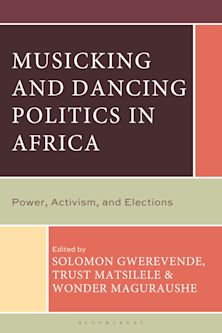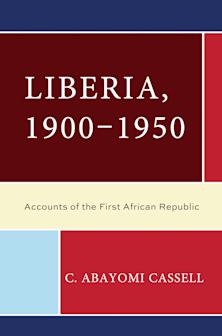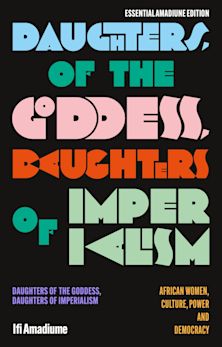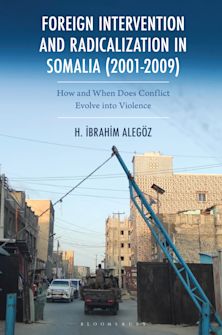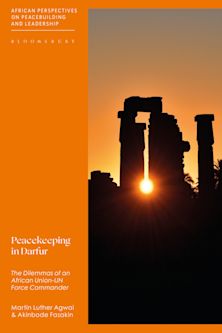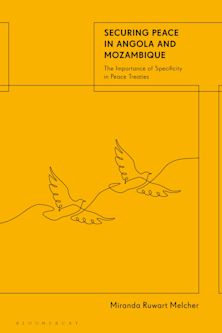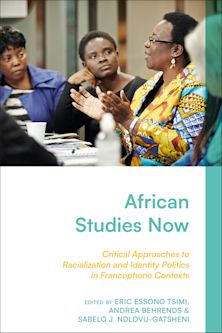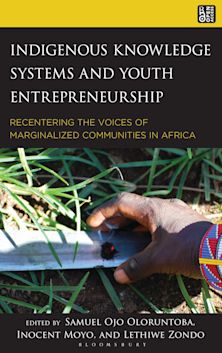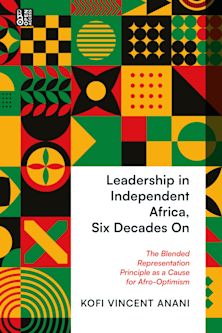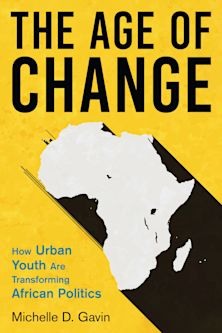Conflictology
Systems, Institutions, and Mechanisms in Africa
Conflictology
Systems, Institutions, and Mechanisms in Africa
This product is usually dispatched within 1 week
- Delivery and returns info
-
Free US delivery on orders $35 or over
Description
Over the past three decades scholars, students and policy makers studying and engaged in conflict resolution have veered between conflict management and resolution. However, the changing nature of conflict, which is taking the form of radicalization and extremism are deeply rooted in individual's ideology, personalities and genes, hence, rendering the conventional macro-level power balance analytics obsolete. The psychology and human genetics are at the center of this evolution. This shift in conflict trends and methods of warfare in Africa and the world over demands that we search for alternative approaches, mechanisms, and innovative response. It is against this background that this new book initiates a fundamental debate on how interdisciplinary adventure could increase the understanding of man-kind and the socio-biological systems surrounding man, hence, the emphasis on the discipline of Conflictology to embody scientific approaches, methods and prescription to conflict resolution. For instance, does individual's gene influence human behaviours, such as "hate"? If so, can this be corrected through gene transposition? If human relations should be anchored on "peace", what are these genetic and behavioural factors that creat "hate" and "violence"? How then, should such a gene or neurobiological system be altered in order to prevent extremism and radicalization?
Table of Contents
Chapter 1: Basic Principles of Conflictology
Chapter 2: Rise and Growth of Insurgency and Terrorism
Chapter 3: Asymmetric Threats in Africa
Chapter 4: Militia Gangs and Rebel Movements in Africa
Chapter 5: Securitization
Part II: Emerging African Peace and Security Architecture
Chapter 6: African Peace and Security Architecture
Chapter 7: Civil-Military Relations
Chapter 8: Social Constructive Assemblage of Peacekeepers
Chapter 9: African Peace and Security Agenda
Part III: Towards a Comprehensive Approach to Conflict Resolution in Africa
Chapter 10: The Power of ‘Africanness’ in the Global Peace and Security Agenda
Chapter 11: Power Sharing in Ethnically Divided Societies
Chapter 12: Wilsonian Approach to Humanitarian Assistance
Chapter 13: Countering Military Counter-Insurgency with the 3Ds Model
Chapter 14: African Futures
Conclusion
Product details
| Published | May 28 2020 |
|---|---|
| Format | Hardback |
| Edition | 1st |
| Extent | 494 |
| ISBN | 9781793615053 |
| Imprint | Lexington Books |
| Illustrations | 1 BW Illustration, 4 BW Photos, 6 Tables |
| Dimensions | 9 x 6 inches |
| Publisher | Bloomsbury Publishing |
Reviews

ONLINE RESOURCES
Bloomsbury Collections
This book is available on Bloomsbury Collections where your library has access.












